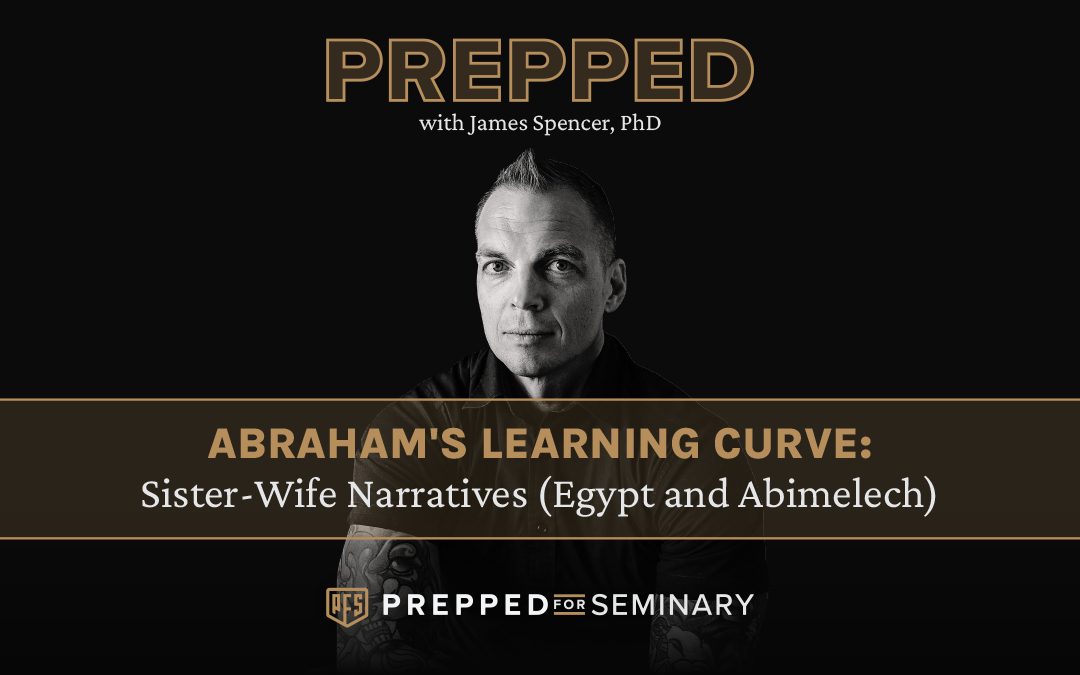Trusting God When Fear Gets Loud
Sometimes, faith looks like saying “yes” to God. Other times, it looks like messing up and discovering that He’s still faithful anyway.
In Genesis 12:10–20, Abram’s story takes a sharp turn. After obeying God’s call to leave his homeland, famine suddenly forces him into Egypt. It’s a moment of crisis and becomes a moment of compromise. Rather than trust God, Abram chooses self-preservation. But here’s the good news: God’s promises aren’t limited by our performance.
This story is about failure, fear, and deception. But more than that, it’s about grace. It’s about a God whose faithfulness travels with us—even into the places we think are outside His reach.
Faith Meets Fear in Egypt
The chapter opens with a problem: “Now there was a famine in the land.” (Genesis 12:10)
Abram, newly obedient and freshly on mission, suddenly finds himself without food, security, or clarity. Egypt, known for abundance, becomes the escape plan.
But as they near the border, fear creeps in. Abram tells Sarai, “Say you are my sister, that it may go well with me… and my life be spared.” (v. 13)
It’s not just a lie. It’s a strategy of self-protection. A plan rooted in anxiety, not assurance. Abram had just been promised by God that he would become a great nation. But in this moment, the threat feels bigger than the promise.
And isn’t that how it often goes? Even those with strong faith may fall back into old fears when crisis hits.
Old World Assumptions and New World Faith
To understand Abram’s actions, we have to consider the worldview of the time. In the ancient Near East, gods were believed to be territorial. Each nation had its own deity. So perhaps Abram thought: “The Lord called me to Canaan—but now I’m heading into Egypt. Maybe He doesn’t have jurisdiction here.”
That’s not just a faulty assumption. It’s a deeply human one.
How often do we live like God’s power is tied to certain places or circumstances? As if His presence only shows up when things are going right?
This story reminds us that God’s care isn’t confined by geography. His faithfulness travels with His people—even into Egypt.
The Pattern of Human Desire: Saw. Good. Took.
This isn’t the first time we’ve seen this in Scripture.
- They saw that the fruit was good… and they took it. (Genesis 3)
- The sons of God saw that the daughters of men were beautiful… and they took them. (Genesis 6)
- The Egyptians saw that Sarai was beautiful… and they took her. (Genesis 12)
It’s the same pattern: We see what looks good. We act on desire. And we take.
This motif isn’t just about Egypt or ancient kings. It’s about us. About how often we act without consulting God—basing decisions on what we see rather than what He says.
But God intervenes. Every time. Not because we’re worthy, but because He’s faithful. Even in the middle of our self-made plans, God steps in to preserve His promises.
God’s Faithfulness Doesn’t Depend on the Zip Code
Pharaoh takes Sarai into his household—unknowingly, but not innocently. Yet, before he can act, God sends plagues.
He doesn’t let Sarai’s integrity or the covenant promise be compromised. And He certainly doesn’t let geography be a barrier to His sovereignty.
“The Lord afflicted Pharaoh… because of Sarai.” (v. 17)
God is not limited by land, politics, or human error. His covenant is secure because He is secure. And what’s more? Abram and Sarai left Egypt richer than they came.
Echoes of Exodus: A Preview of What’s to Come
This story doesn’t stand alone. It foreshadows a much bigger deliverance:
- Just as Abram fled to Egypt due to famine, so would Jacob and his sons.
- Just as Sarai was taken, so would the Israelites be enslaved.
- Just as God sent plagues to secure her release, so would He do again for Moses.
- And just as Abram left Egypt with wealth, so would Israel walk out with treasure in hand.
Genesis 12 isn’t just about Abram—it’s a preview of God’s ongoing redemption. A pattern of faithfulness that plays out again and again across Scripture—and across our lives.
The Learning Curve of Faith
It would be comforting if Abram never made the same mistake again. But in Genesis 20, he repeats the same plan with Abimelech. Fear shows up. The deception returns.
But so does God.
This isn’t to excuse the failure. It’s to underscore the process.
Faith is a journey. We grow through grace. We stumble forward. And God, in His mercy, teaches us—even when we’re slow to learn.
When We Fail, God Is Faithful
Abram’s fear led to compromise. But God’s covenant never wavered.
That’s the heart of this story. Not that we should trust in our plans, but that we serve a God whose purposes prevail—even when we don’t get it right.
So let this remind us:
- God’s care doesn’t stop when we leave the familiar.
- His promises aren’t invalidated by our fear.
- His faithfulness isn’t confined by borders.
- And His grace meets us in our failure—not just after we fix it.
Reflection Questions
- What fear do you currently face that tempts you to rely on your plans?
- Are there areas of your life where you believe God’s presence is limited or conditional?
- What “saw good, took” patterns do you find yourself repeating?
- How has God shown faithfulness to you even when your faith faltered?
- What would responding to uncertainty with trust instead of control look like this week?
